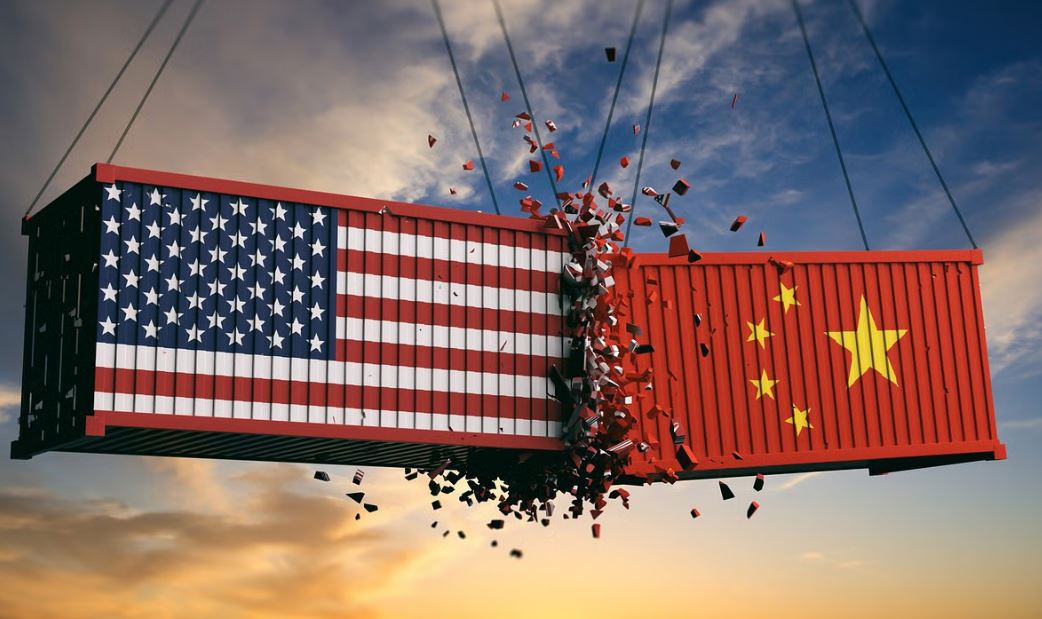Gambiaj.com – (WASHINGTON, DC) – Facing a global market downturn, President Donald Trump on Wednesday announced a 90-day pause on tariffs for most nations but raised the tax rate on Chinese imports to 125%, marking a dramatic escalation in the ongoing U.S.-China trade war.
The move, which triggered a 9.5% surge in the S&P 500 stock index, signals an effort by Trump to shift the focus of his aggressive trade policies toward Beijing while calming financial markets rattled by his tariffs. However, the administration is now set for a complex round of country-by-country trade negotiations, with U.S. Treasury Secretary Scott Bessent describing the upcoming talks as “bespoke” agreements tailored to each nation’s economic relationship with the U.S.
Market Jitters and Political Repercussions
The decision comes amid mounting pressure from volatile financial markets, which had been sliding as businesses and investors expressed concerns about rising costs, potential recessions, and deteriorating trade relationships. Trump himself acknowledged the stock market’s role in his decision, telling reporters that investors were getting “yippy” and “afraid.”
Despite administration officials’ earlier claims that the tariffs were not up for negotiation, Trump justified his reversal by pointing to the interest of more than 75 countries seeking trade discussions. In a post on Truth Social, he announced the temporary tariff reduction to 10% for most nations, effective immediately. However, he remained defiant in his stance against China, stating, “Nothing’s over yet.”
The political backlash was swift. Senate Minority Leader Chuck Schumer criticized Trump, saying he was not fulfilling his promise to American voters. Meanwhile, Commerce Secretary Howard Lutnick downplayed the stock market’s influence on Trump’s decision, claiming that diplomatic overtures from other nations, rather than market turmoil, prompted the tariff freeze.
A Calculated Gamble?
The administration’s handling of tariffs has been widely scrutinized. Some business leaders, including Delta Air Lines CEO Ed Bastian, argued that Trump’s approach lacks strategic coherence compared to his first term. “Trying to do it all at the same time has created chaos in terms of being able to make plans,” Bastian said, highlighting the uncertainty the tariffs have caused for major industries.
Trump’s decision to exclude China from the tariff freeze is likely to deepen tensions between the world’s two largest economies. The World Trade Organization’s director-general, Ngozi Okonjo-Iweala, warned that the U.S.-China trade conflict could cause severe global economic disruptions, potentially leading to a fragmentation of international trade along geopolitical lines.
Next Steps in Trump’s Trade Strategy
With the 90-day window now open, negotiations with individual countries are expected to intensify. Treasury Secretary Bessent indicated that nations such as Japan, South Korea, and India are among those seeking tariff reductions, while Vietnam was set to hold discussions later this week.
Meanwhile, analysts warn that uncertainty still looms. Economic forecasters suggest that Trump’s tariff policy—if mishandled—could tip the U.S. into a recession, especially if it triggers shocks to consumer sentiment and corporate confidence.
While Trump’s move provides temporary relief to global markets, the president’s ability to strike favorable trade deals in the coming months will determine whether this shift marks a new strategy or simply a pause before further economic turmoil.










